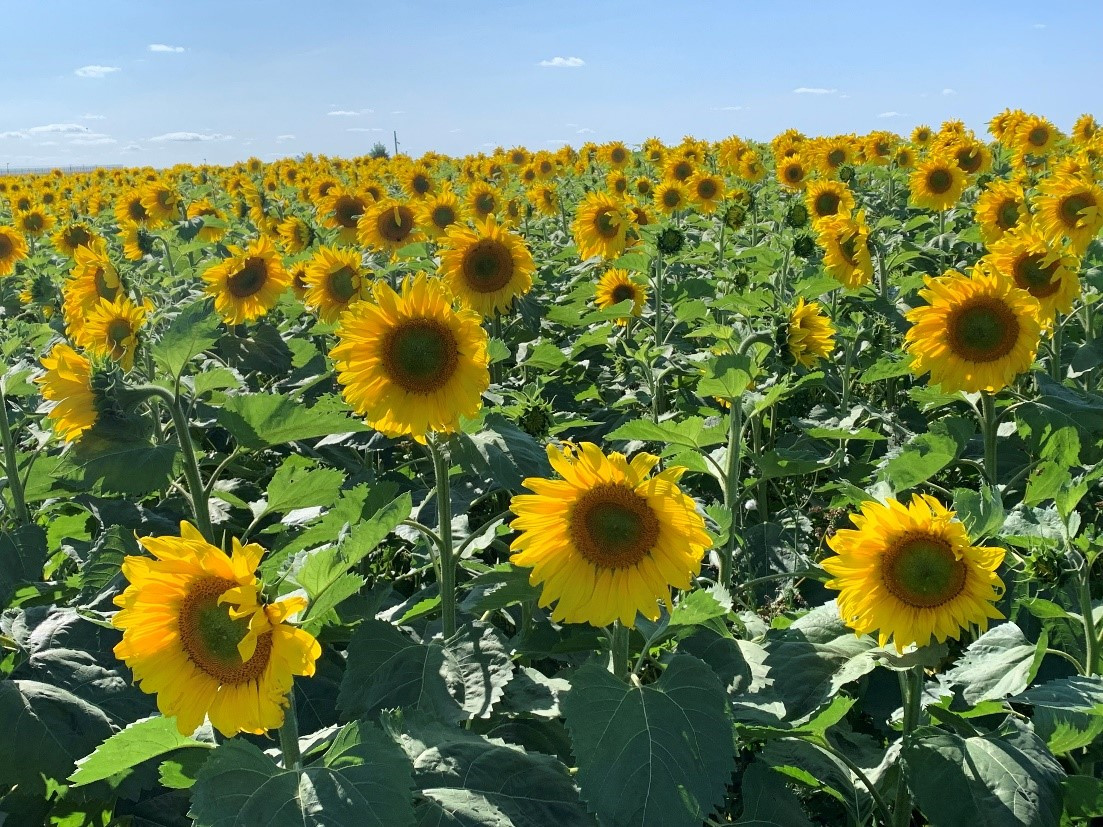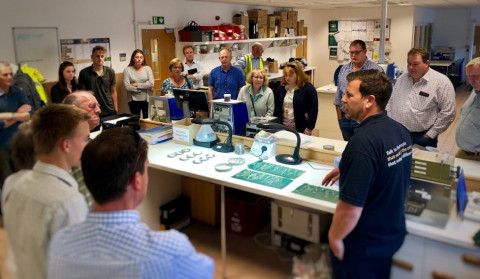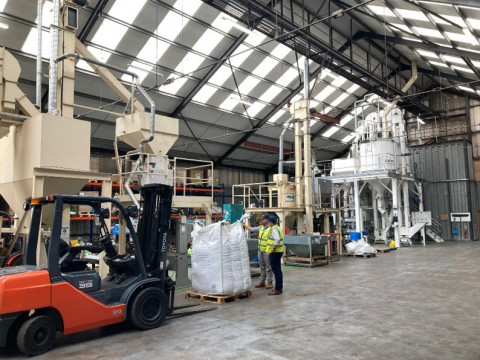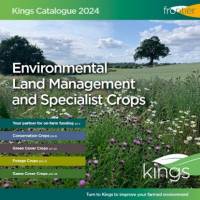Specialist and environmental crop mixes: The importance of quality seed
When it comes to specialist mixes and crops designed to deliver specific benefits to the environment and wider farm or estate, making sure you're using high quality seed is paramount. If not, you could be looking at some unwelcome issues, increased time and effort spent managing your crops, poor performance overall and even putting the wider rotation or environment at risk.
Where does the seed in our Kings Crops mixes come from?
We pride ourselves in producing a quality product from the best seed on the market and there are rigorous steps we take to ensure we meet the expectations of our customers. When speaking to farmers and land managers about their objectives or the challenges, we understand the importance of having peace of mind in our product and being able to trust in its provenance.
So far we have purchased over 2,000 tonnes of seed for next season. Most of our cereal seed is grown and sourced in the UK, alongside several other plant species that are well suited to our climate. A large percentage of our supplementary feed crops, such as sunflowers, are grown on farms here too.
For the range of mixes we provide, purposes they fill and benefits they bring, there are some seeds we need to source from other countries – but not without extensive quality protocols, checks and testing. This is because the UK summer isn't long enough for all our key plant species to produce viable seed that meets the needs and requirements of our customers.
Some of our seed is sourced from places like Australia and New Zealand, continental Europe and even Argentina. By using seed that's grown in both the Northern and Southern Hemispheres, it means we can alternate sources if stocks are low, due to the different harvest periods in each region.
Of course, weather and climate patterns are changing, and with that comes the need to always evaluate our seed sources. We need to ensure the products continue to deliver in the face of more intense weather events and growing conditions, but equally assess the opportunities to grow other species here that may not have been viable before.
We're currently running trials with new species to see if we can grow more of them in this country. If successful, it could nullify the risk of crop failure due to the drought conditions that other parts of the world can experience at a severe level. For example, vetch seed is short for the second year in a row due to the extreme droughts that Spain and France have experienced.
How we work with seed suppliers
We pride ourselves on great and collaborative relationships with seed suppliers – sharing knowledge and expertise means we can ensure the end product is the best it can be.
We regularly meet with our suppliers to discuss requirements and expectations for the seed we purchase for our customers. Before any seed is delivered to us, we request certification paperwork to confirm germination and purity.
We also have a list of contaminants (one example being barnyard grass) that we do not want in our seed. If it's present, this could mean that we don't receive all the required product or that the seed needs further cleaning and treatment before we can progress delivery. Our priority is always quality over quantity!
Testing protocols
Once any seed we have sourced has arrived at our processing site in Diss, Norfolk, it then makes its way to the laboratory which is a licensed seed testing station. The laboratory team takes a sample to visually inspect for purity and germination testing.
Between November and the end of February, the lab team will carry out this germination testing on all stock being stored for the next drilling year. This includes both single species products and mixtures. It's worth nothing that each mixture will be separated out into its individual components and each will be tested separately. It can be extensive work but it's of huge importance for ensuring quality - some mixtures have more than eighteen components!
If the seed passes these stages and is then certified, it must adhere to a legal germination standard. If it doesn't meet the standard it can be re-tested, but if it fails a second time then it must be disposed of. Any crop species that aren't certifiable under UK legislation but can be certified in another country have the potential to be sold in the UK with no guarantee of a minimum germination and purity level.
We have created our own minimum standards for these species, which are designed to match the standards of other closely related species. For example, there are no minimum standards in the UK for black oats (Avena strigose), so we have adopted the UK standards for cultivated oats (Avena sativa) to ensure there is absolute clarity over the quality of seed.
For the 2023/24 season, 358 single species products and 188 mixtures were tested by our teams. The grand total of tests conducted over the winter period was upwards of 1,300.
Getting the seed to you
In 2019, Frontier Agriculture invested in the storage, production and dispatch facilities that function alongside the laboratory at Diss. The site includes three dedicated seed mixers and a new infrastructure to support a wider range of seed stock and dispatches.
This means we're able to supply quality-assured seed delivered in a timely and efficient manner, supporting farm businesses in achieving their natural capital objectives and agri-environment scheme requirements.
We're here to support you
Quality seed results in a quality crop – ultimately everything we do when it comes to sourcing the highest possible standard of seed comes down to how it performs for you. We have a team of expert advisors who can support you across all aspects of specialist and environmental crops, from considering suitable species and purchasing mixes through to ongoing management and removal.
If you have any questions about our seed or would like to find out more about the mixtures we're able to supply, please speak to your local Kings contact. Alternatively, you can get in touch or read the newly released 2024 Kings catalogue.
OUT NOW: 2024 environmental land management and specialist crops catalogue
This year's catalogue is a comprehensive resource containing recommendations from experts across Kings, Frontier Agriculture and SOYL. It offers information on our specialist products and services, including conservation, green cover, forage and game cover crop seed mixtures, as well as advice on the latest environmental land management schemes such as the Sustainable Farming Incentive (SFI) and Countryside Stewardship (CS).
- The 2024 catalogue is available to view and download online.
Claire Colchester
Technical & Commercial Support Assistant
Steven Bailey
Assistant Laboratory Manager
As a subscriber, you’ll receive email alerts each time a new blog is published so you can always stay updated with the latest advice and insights from our experts







Comments